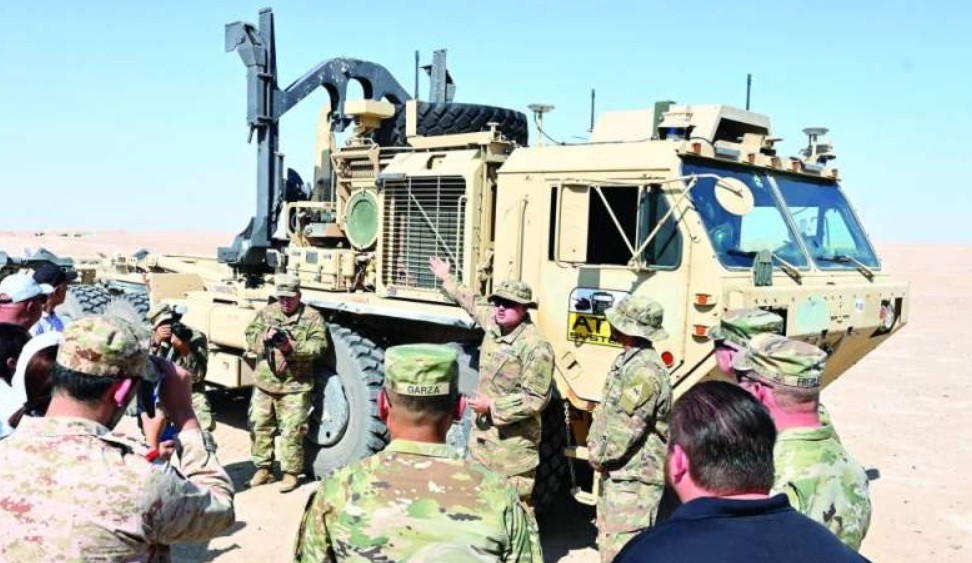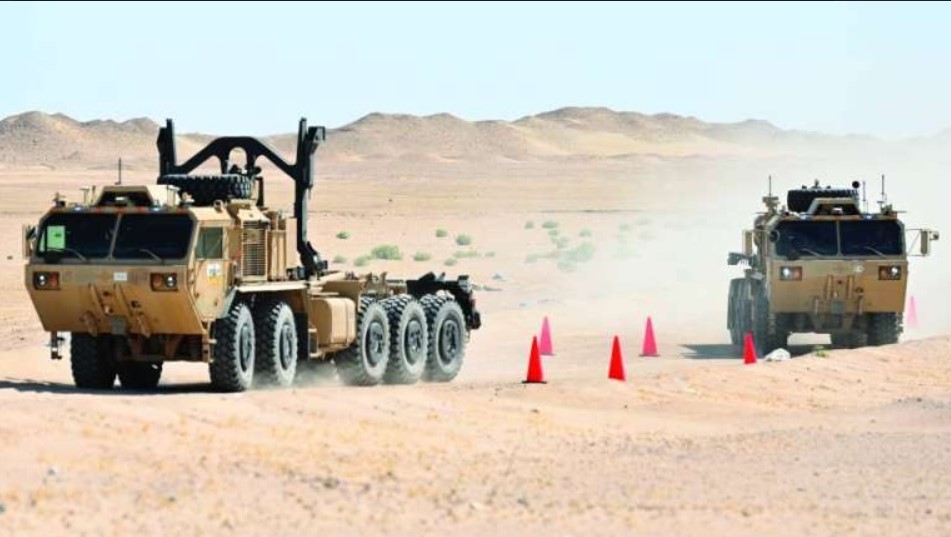26/07/2023
26/07/2023

KUWAIT CITY, July 26: Colonel Fahad Bourisli from the Kuwait Land Forces affirmed the depth of the defense and security cooperation relations between Kuwait and the United States, revealing that one of the forms of cooperation between the Kuwaiti and American armies is to present the latest developments and innovations of the American forces in armaments and mechanisms to carry wheeled equipment and are equipped with a crane, which the American side seeks to put into service in the year 2026, reports Al-Rai daily.
In a statement issued on the sidelines of the display and testing of an unmanned military supply truck Palletized Load Systems PLS at Buehring Base on Monday, he said these mechanisms operate automatically and move on their own or through wireless systems.
He indicated that their experience on Kuwaiti territory reflects the extent of the cooperation between the armies of the two countries, adding that it is an opportunity for more joint exercises and cooperation in concluding deals in the future.

Meanwhile, the Commander-in-Chief of the US Central Army Lieutenant General Patrick Frank affirmed that the ten-wheel supply trucks are one of the fruits of advanced technology that is being prepared to enter service in 2026.
He stressed that the US Central Command is working to test this new technology in the desert to collect data on the capabilities of these autonomous vehicles, which reduce the number of soldiers exposed to threats on the battlefield while increasing unit capabilities.
Lieutenant General Patrick Frank said, "These autonomous vehicles will help preserve the lives of Americans and their partners and allies around the world. They are considered the future of logistical support operations for armies. We are therefore testing this new technology in Kuwait in terms of capabilities and performance. We are focused on testing new technologies together withKuwait's Ministry of Defense and all our regional partners, as interoperability is a condition for any new technology."
He highlighted his country's commitment to developing these vehicles and their autonomous systems.
Furthermore, the logistics officer from the US Central Army Nathan Amos explained that the army tested three self-driving vehicles during support operations in Kuwait. There are seven other vehicles that will soon come for the experiment. These independent systems are installed with a vehicle with ten wheels optimized for transporting loads on surfaces to support Army operations. Autonomous systems are designed to operate semi-autonomously with guidance and input.
The purpose of the test was to collect as much data as possible about the capabilities and limitations of semi-autonomous vehicles in the difficult desert environment in Kuwait. The vehicles had been previously tested at the Fort Polk military base in the United States, and in the US European Command.
Amos pointed out that the vehicle operators specialize in army transportation and have been trained on vehicles since late June 2023, adding that semi-autonomous vehicles are the future of army support operations, as they reduce the risks to the employees by reducing the number of operators exposed to threats, while increasing the capacity of sustainability units.
He stressed that training in the use of these mechanisms requires just a two-week training course only to master the method of operating them.
It is worth mentioning that a herd of camels crossed the road designated for testing the PLS, and stopped in the middle of the road for more than half an hour, as if they wanted to watch these vehicles without a driver. After moving from the field, the operators of the vehicles resumed their experience.


